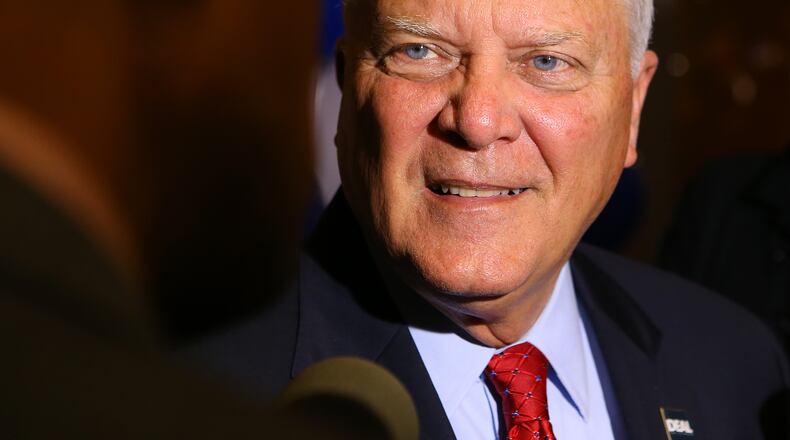Gov. Nathan Deal came out against a measure to allow medical marijuana to be grown in the state, but his administration is backing a smaller expansion of the program.
Deal's top aide, Chris Riley, told The Atlanta Journal-Constitution that the governor will endorse adding post-traumatic stress disorder and chronic pain, a condition includes diagnosed migraines, to the list of illnesses covered under the program.
The decision was praised by Republican state Rep. Allen Peake, the author of the state's medical marijuana program.
"While we still have an access issue, I'm grateful for Gov. Deal's support on helping more hurting citizens have the legal right to possess potentially life-changing medicine," the Macon restaurateur said.
The expansion is outlined in House Bill 764, which also calls for new licensing and reporting requirements for medical marijuana providers.
The governor said earlier this week he would oppose a broader effort to allow the in-state cultivation of medical marijuana this year, forcing supporters of a major expansion to wait until his successor takes office next year to press their case.
Created in 2015, the program made it legal for people suffering from more than a dozen illnesses - including cancer, Parkinson's disease, seizure disorders and severe autism - to possess small amounts of cannabis oil if a physician signs off.
The state has estimated hundreds of thousands of residents could be eligible for the drug, but only about 3,500 Georgians have signed up for the program in part because of tremendous logistical and legal hurdles for patients who want to get the drug.
It’s illegal to cultivate marijuana in Georgia, which means families have to rely on benefactors or trek to states that have legalized the drug for medical purposes. That makes travel a tricky prospect, since federal law bans transporting the drug across state lines and bars possessing it.
The debate over allowing marijuana to be grown in the state has emerged as a dividing line in the race for governor, with four leading candidates supporting legislation to provide easier access to the drug and three skeptical of those plans.
About the Author
The Latest
Featured




